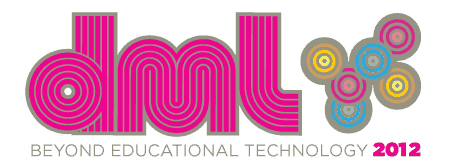DML: Are Badges the Answer? Perspectives on Motivation for Lifelong Learning
The field of digital media and learning is focusing attention on badges as motivators and credentials for lifelong learning. Are badges and related reward systems crowding out other important sources of motivation? Join this session for a provocative yet practical discussion of approaches for engaging youth in sustained pursuit of learning.
Panelists will share ideas from research and practice on creating conditions that foster motivation for learning. Session participants will engage in discussion of examples of youth engaged in learning online and offline, with each scenario highlighting a different source of motivation and alternative pathways for gaining recognition. Panelists and participants will discuss how to apply these concepts and approaches to the design of digital environments and initiatives.
How can we encourage youth with diverse abilities to engage in problem solving and persist in learning? After experiencing a failure or other setback, some young people give up while others engage in problem solving. A consistent finding from decades of research is that an environment that emphasizes performance goals (i.e., seeking to demonstrate one’s ability) makes people more likely to give up, whereas an environment that emphasizes learning goals (i.e., seeking to develop one’s ability) encourages people to persist in problem solving and improve their strategies (Kaplan & Maehr, 2007; Rusk & Rothbaum, 2010). Participants will be invited to discuss implications for badge systems and how these ideas apply to their own experiences and learning communities.
Mitch Resnick will frame and moderate the discussion, highlighting the urgency of considering alternative approaches to sparking young people's motivation. Avi Kaplan will present findings and ideas from the frontiers of research, including a framework for promoting learning goals and principles for supporting an exploratory orientation. Natalie Rusk will illustrate how theories of motivation can inform the design of learning environments, providing examples from Scratch and the Computer Clubhouse. Amon Millner will share strategies for engaging high school students with diverse interests as mentors and developers of innovative technologies.
AGENDA FOR SESSSION (90 minutes total)
- Framing questions of motivation (Resnick) - 5 min.
- Introducing perspectives (Kaplan, Rusk, Millner) - 30 min.
- Discussion of motivational scenarios (All participants) - 25 min.
- Applying ideas to digital media environments (All) - 15 minutes
- Reflection and discussion (Resnick leads) - 15 minutes



